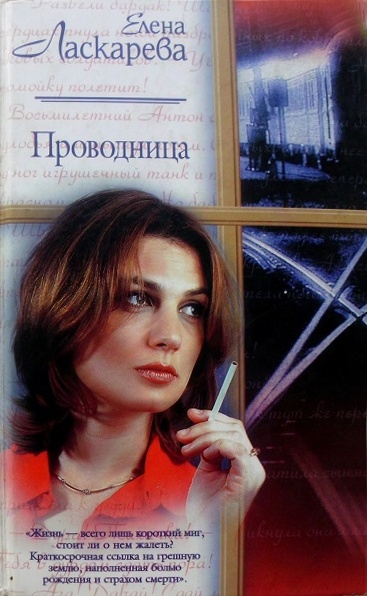Agatha Christie - Английский язык с Агатой Кристи. Убийство в Восточном Экспрессе (ASCII-IPA)

Помощь проекту
Английский язык с Агатой Кристи. Убийство в Восточном Экспрессе (ASCII-IPA) читать книгу онлайн
“Quite ready now, Mr. Ratchett (все /совершенно/ готово, мистер Рэтчетт).”
husky ['hVskI] queer [[email protected]] dangerous ['[email protected]@s] quality ['kwOlItI] lounge [laUndZ] supervise ['s(j)u:[email protected]]
Then he rose.
“Pay the bill, Hector,” he said.
His voice was slightly husky in tone. It had a queer, soft, dangerous quality.
When Poirot rejoined his friend in the lounge, the other two men were just leaving the hotel. Their luggage was being brought down. The younger was supervising the process. Presently he opened the glass door and said:
“Quite ready now, Mr. Ratchett.”
The elder man grunted an assent (тот: «мужчина», что постарше пробормотал что-то в знак согласия; to grunt — хрюкать; бормотать; assent — согласие) and passed out (и вышел /из гостиницы/).
“Eh bien,” said Poirot. “What do you think of those two (ну, что вы думаете о тех двоих)?”
“They are Americans (они американцы),” said M. Bouc.
“Assuredly they are Americans (конечно, они американцы; to assure — уверять, заверять). I meant (я имел в виду; to mean (meant) — намереваться; подразумевать, иметь в виду) what did you think of their personalities (что вы думаете об их личностях)?”
“The young man seemed quite agreeable (молодой человек выглядел/показался мне вполне приятным).”
“And the other (а другой)?”
“To tell you the truth, my friend (сказать вам по правде, мой друг), I did not care for him (о нем я не заботился = я не обратил на него особого внимания; to care — заботиться; любить, питать интерес к кому-либо, чему-либо). He produced on me an unpleasant impression (он произвел на меня неприятное впечатление; to produce — предъявлять; производить, изготовлять; pleasant — приятный, милый). And you (а на вас)?”
personality [,[email protected]:[email protected]'n&lItI] agreeable [@'gri:@b(@)l] impression [Im'preS(@)n]
The elder man grunted an assent and passed out.
“Eh bien,” said Poirot. “What do you think of those two?”
“They are Americans,” said M. Bouc.
“Assuredly they are Americans. I meant what did you think of their personalities?”
“The young man seemed quite agreeable.”
“And the other?”
“To tell you the truth, my friend, I did not care for him. He produced on me an unpleasant impression. And you?”
Hercule Poirot was a moment in replying (Эркюль Пуаро помедлил с ответом: «был на момент в ответе»; moment — момент, мгновение; to reply — отвечать).
“When he passed me in the restaurant (когда он прошел мимо меня в ресторане),” he said at last (сказал он наконец), “I had a curious impression (у меня сложилось: «было» странное впечатление; curious — любознательный; странный, чудной). It was as though a wild animal (словно какое-то дикое животное; wild — дикий, дикорастущий) — an animal savage, but savage (свирепое животное, очень свирепое: «но /какое же/ свирепое»; savage — дикий, варварский; жестокий, свирепый; неукрощенный; animal savage (на англ. нужно: savage animal) — порядок слов неправилен: Пуаро от волнения употребляет конструкцию родного французского языка, то же самое касается фразы-кальки с французского ‘an animal savage, but savage’)! you understand (вы понимаете) — had passed me by (прошло мимо меня).”
“And yet he looked altogether (и все же он выглядел в общем) of the most respectable (более чем прилично/респектабельно).”
“Précisément (фр. именно/совершенно точно)! The body — the cage (тело — /как/ клетка) — is everything of the most respectable (всё более чем приличное; everything — все; все самое главное, важное) — but through the bars (но сквозь прутья /клетки/; bar — кусок, брусок; пруток; тюремная решетка), the wild animal looks out (смотрит дикий зверь).”
savage ['s&vIdZ] respectable [rI'[email protected](@)l] through [Tru:]
Hercule Poirot was a moment in replying.
“When he passed me in the restaurant,” he said at last, “I had a curious impression. It was as though a wild animal — an animal savage, but savage! you understand — had passed me by.”
“And yet he looked altogether of the most respectable.”
“Précisément! The body — the cage — is everything of the most respectable — but through the bars, the wild animal looks out.”
“You are fanciful, mon vieux (вы обладаете живым воображением, дружище; fancy — фантазия, воображение; fanciful — капризный; обладающий живой фантазией),” said M. Bouc.
“It may be so (может быть и так). But I could not rid myself of the impression (но я не мог отделаться от впечатления; to rid — освобождать, избавлять) that evil had passed me by very close (что зло прошло рядом со мной).”
“That respectable American gentleman (тот почтенный американец)?”
“That respectable American gentleman.”
“Well (ну),” said M. Bouc cheerfully (сказал мсье Бук бодро/весело), “it may be so (может быть и так). There is much evil in the world (в этом мире много зла).”
At that moment the door opened (в тот самый момент открылась дверь) and the concierge came towards them (и к ним подошел консьерж). He looked concerned and apologetic (он выглядел озабоченным и извиняющимся; concerned — имеющий отношение к чему-либо; озабоченный, обеспокоенный; to apologize — извиняться, просить прощения).
fanciful ['f&nsIf(@)l] evil ['i:v(@)l] cheerfully ['[email protected](@)lI] apologetic [@,[email protected]'dZetIk]
“You are fanciful, mon vieux,” said M. Bouc.
“It may be so. But I could not rid myself of the impression that evil had passed me by very close.”
“That respectable American gentleman?”
“That respectable American gentleman.”
“Well,” said M. Bouc cheerfully, “it may be so. There is much evil in the world.”
At that moment the door opened and the concierge came towards them. He looked concerned and apologetic.
“It is extraordinary, Monsieur,” he said to Poirot (это что-то невероятное, мсье — сказал он Пуаро). “There is not one first-class sleeping berth (ни одного спального места в /вагоне/ первого класса; berth — койка /на пароходе/; спальное место, полка /в вагоне/) to be had on the train (/нельзя/ достать на этот поезд).”
“Comment?” cried M. Bouc (как так? вскричал мсье Бук; to cry — кричать; восклицать, вскрикнуть; comment — фр. как; как так). “At this time of year (в это время года)? Ah, without doubt (а, без всякого сомнения) there is some party of journalists (какая-нибудь группа журналистов; party — отряд, команда; группа, компания) — of politicians (или политиков) — ?”
“I don’t know, sir (я не знаю, сэр),” said the concierge (сказал консьерж), turning to him respectfully (поворачиваясь к нему уважительно; to respect — уважать, почитать). “But that’s how it is (но именно так и обстоит дело).”
extraordinary [Ik'strO:d(@)n(@)rI] berth [[email protected]:T] journalist ['[email protected]:n(@)lIst] politician [,pOlI'tIS(@)n]
“It is extraordinary, Monsieur,” he said to Poirot. “There is not one first-class sleeping berth to be had on the train.”
“Comment?” cried M. Bouc. “At this time of year? Ah, without doubt there is some party of journalists — of politicians — ?”
“I don’t know, sir,” said the concierge, turning to him respectfully. “But that’s how it is.”
“Well, well (ну, ну).” M. Bouc turned to Poirot (мсье Бук повернулся к Пуаро). “Have no fear, my friend (не бойтесь, друг мой; fear — страх, боязнь). We will arrange something (мы что-нибудь придумаем: «устроим»; to arrange — приводить в порядок; уладить, устроить). There is always one compartment, the No. 16 (всегда есть одно купе — купе под номером 16), which is not engaged (которое /никогда/ не занято; to engage — нанимать; занимать; engaged — обрученный; занятый). The conductor sees to that (проводник следит за этим; to see to smth. — следить, присматривать за чем-либо)!” He smiled (он улыбнулся), then glanced up at the clock (затем быстро взглянул на часы). “Come (пойдемте),” he said, “it is time we started (самое время нам отправится в путь).”
At the station M. Bouc was greeted (на станции мсье Бук был встречен; to greet — здороваться, приветствовать; встречать /возгласами и т.п./) with respectful empressement (с почтительной услужливостью; empressement — фр. усердие, рвение, услужливость) by the brown-uniformed Wagon Lit conductor (проводником спального вагона в коричневой униформе).
fear [[email protected]] engaged [In'geIdZd] empressement [,A:Npres'mA:N] uniformed ['ju:nIfO:md]
“Well, well.” M. Bouc turned to Poirot. “Have no fear, my friend. We will arrange something. There is always one compartment, the No. 16, which is not engaged. The conductor sees to that!” He smiled, then glanced up at the clock. “Come,” he said, “it is time we started.”
At the station M. Bouc was greeted with respectful empressement by the brown-uniformed Wagon Lit conductor.
“Good evening, Monsieur. Your compartment is the No. 1 (ваше купе — номер 1).”
He called to the porters (он позвал носильщиков; porter — носильщик /особ. в гостинице, на вокзале/, грузчик) and they wheeled their load (и они покатили /на тележке/ их багаж; to wheel — катить, везти; load — груз; ноша) halfway along the carriage (к середине пассажирского вагона) on which the tin plates (на котором жестяные таблички; tin — оловянный; жестяной; plate — тарелка; пластинка, дощечка) proclaimed its destination (говорили о месте его назначения; to proclaim — объявлять, провозглашать):
ISTANBUL TRIESTE CALAIS
(Стамбул — Триест — Кале)
wheel [wi:l] carriage ['k&rIdZ] proclaim [[email protected]'kleIm]
“Good evening, Monsieur. Your compartment is the No. 1.”
He called to the porters and they wheeled their load halfway along the carriage on which the tin plates proclaimed its destination:
ISTANBUL TRIESTE CALAIS
“You are full up to-night (у вас сегодня все места заняты: «вы набиты битком сегодня вечером»; full — полный; наполненный, заполненный; full up — битком набитый), I hear (я слышал: «я слышу»; to hear (heard))?”
“It is incredible, Monsieur (это невероятно/неслыханно, мсье). All the world elects to travel to-night (весь мир решил отправиться в путешествие сегодня вечером; to elect — выбирать /голосованием/; делать выбор, принимать решение)!”

























